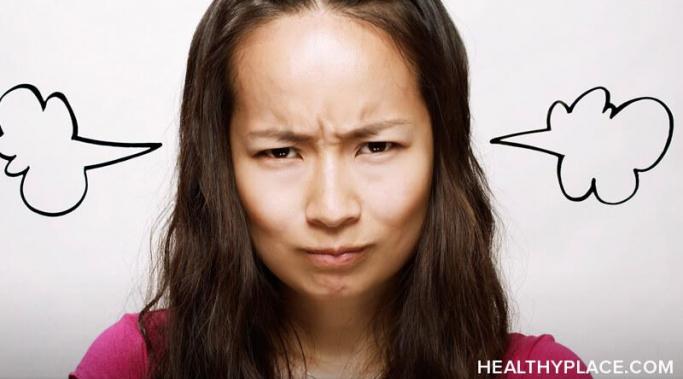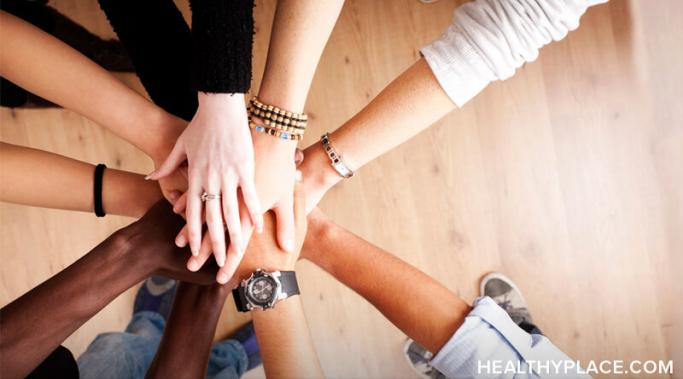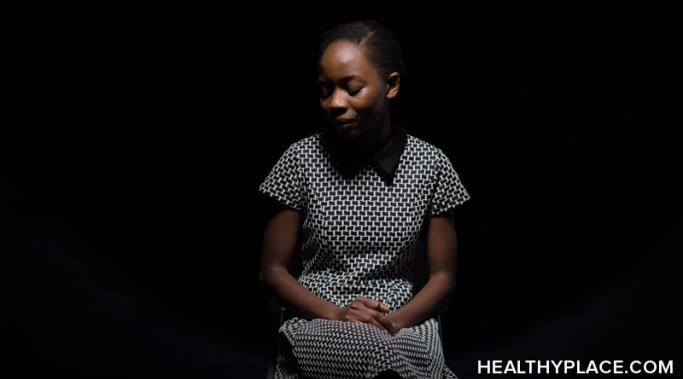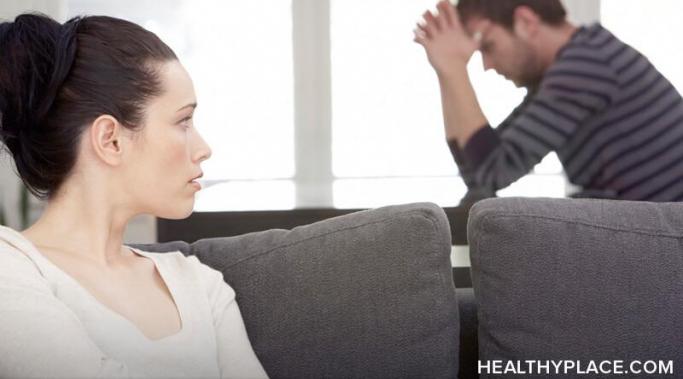Anger or rage can actually be depression in disguise. I've learned this the hard way. Sometimes I walk around wanting to punch someone in the face because I'm so angry -- when I have absolutely nothing to be angry about. But the fact of the matter is, while the feelings of anger or rage are real, the cause is not always anger, per se, but depression. Depression has disguised itself as anger or rage.
Breaking Bipolar
It's not uncommon for people with bipolar disorder (and other mental illnesses) to think they're fine and they don't need bipolar medication. There are several reasons for this, and it can happen at any time during treatment. This thought pattern can truly hurt people. So, let's take a look at why some people with bipolar disorder think they don't need bipolar medication.
I'm wondering if what I want matters with bipolar. It feels like it doesn't. This is because one of the main coping skills I use is called "act the opposite." This coping skill is pretty widely known. It simply means to do what you bipolar doesn't want you to do. This is a way of fighting against the detrimental effects bipolar can have on your life. But after years of "acting the opposite," I'm left wondering if what I want matters at all with bipolar.
It's critical to have a support system when you have bipolar disorder. Support systems, in fact, are very important for every person, but they're even more so when you have a serious mental illness. But the questions people sometimes ask are what is a bipolar support system, how do I get one and how do I use it.
I suffer from doctor anxiety. Well, I suppose I suffer from generalized anxiety, but, certainly, some of it belongs to doctors specifically. And this week, I have a great (mis)fortune of meeting two new doctors. Meeting doctors is part of healthcare and part of trying to keep yourself as healthy as possible, so, in that sense, it's a positive thing. On the other hand, the anxiety I feel around doctors is looming large.
I thought for a very long time that I could outthink bipolar disorder. I thought, if bipolar disorder is in my mind, then my mind can defeat it. I thought that if I just read the right book, learned the right coping skill or understood the right philosophy, I could outthink the bipolar disorder. And this is not an uncommon feeling. It's one of the reasons that people refuse medications or go off their medications -- whether they express it in those words or not. People think -- errantly -- that bipolar disorder is all in their head, and so their head can fix it.
Going off bipolar medication is a bad idea -- well, it's almost always a bad idea. I know why people want to do it. I would suggest that pretty much everyone on bipolar disorder medication has wanted to go off of it multiple times during treatment. This is completely normal and almost unavoidable. In spite of this strong desire, though, going off bipolar medication is almost always a bad idea.
It's hard to look forward with bipolar disorder sometimes. Sure, if you happen to be hypomanic, or manic even, looking forward might make you feel great. You might feel like your hope is boundless and your life is limitless. If, however, you are in a depression, or even if you're euthymic (not in a bipolar mood episode), you might find looking forward with bipolar to be very hard indeed. I'm here to say, though, while it can be hard to be positive about the future with bipolar, it isn't impossible to see a glimmer or two on the horizon.
Do you feel like you can't handle the holidays that are right around the corner? If you are in this boat, you aren't alone. I suspect this is going to be one of the hardest holiday seasons in years for many people and many families. However, if you have bipolar disorder, not being able to handle the holidays can be even worse than for the average person. Today, I'll be discussing what to do if you feel like you can't handle the holidays because you're overwhelmed or otherwise.
Have you tried (and maybe failed) to get your health boundaries respect in the past? If so, you know how tricky it can be. In my last post, I talked about setting health and mental health boundaries. I acknowledged their importance, particularly now, in the midst of a pandemic. Today, I want to talk about how to communicate with others such that they respect your health boundaries.









